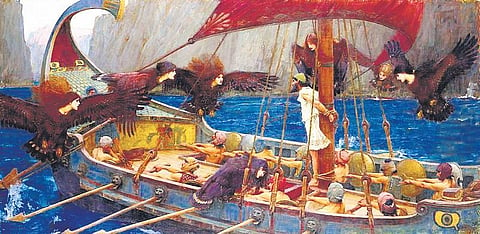

Behavioural economists talk about a phenomenon called myopic discounting. When faced with the choice of a small gain in the future or a large gain a bit more down the line, everyone at first will pick the larger gain. But the choice may change with time—the small gain may seem more attractive because of its immediacy.
If you ask people whether they want a hundred rupees after seven days, or a hundred and ten rupees after eight days, most will choose the second option. But the story might change on the seventh day. If asked then whether they want a hundred rupees immediately or ten rupees more the next day, some would change their mind and want the hundred right then. This is myopic discounting. Adjacent advantage is valued more.
Take the example of smoking. It is easy to decide now to stop smoking from next month, but when the time comes the decision may be reversed. There is no problem in deciding today that tomorrow you will not lie down and will study in the morning.
The alarm will be ready. But at the moment of getting up, it might feel better to sleep than to study. Another example is about the decision to eat freely or to go on a diet. It is not difficult to decide to diet when you are not hungry. But when the time comes to eat, it will seem that eating is better than dieting. This is myopic discounting, a phenomenon that has been observed in other species too.
This weakness of myopic discounting, or the conflict between one’s own two competing minds, can be solved if one takes ‘the way of Odysseus’. It is a behavioral and philosophical tool related to a story in Homer’s Odyssey. Seafarers mesmerized by the Sirens’ songs crash their ships on rocks and die.
Knowing this, Odysseus binds his companions to the ship, realizing that they will not survive if they hear those beautiful songs, and plugs their ears and his own with wax, thus escaping without hearing the Siren songs. This is Odysseus' way of making oneself uncomfortable for a greater future gain—the ‘good’ me recognizes the opportunities that the ‘bad’ me may gain control of, and looks for ways to counter it.
Some people know that they will likely turn off the alarm in the morning, put it out of reach, and go back to bed. They can force themselves to get up or get someone else to force them to get up. To stop the alarm, you have to run behind the clock and catch it. Similarly, someone who realizes that they cannot stop looking at Facebook all the time can delete the account. People who are sure that they will smoke if they see cigarettes can avoid buying cigarettes and keeping them near themselves. A person who is sure that he cannot help drinking in the company can avoid such friends.
Those who know that the money they get will not stay in their hand, give it to their wives or the chitti. Arrangements will be made to pay directly into the pension fund from the salary itself. The occasion of Akshaya Tritiya lights up some people’s eyes. Just because of the custom on that day of the year, significant sums of money that would otherwise have been spent are saved as gold. The gold is in the custody of the wife or the children in the form of an ornament, and so the husband does not get to touch it unless absolutely necessary.
The popularity of this Akshaya Tritiya custom is proof that common people have practical wisdom that intellectuals may lack. Many Akshaya Tritiya ‘believers’ buy gold either because they believe it will bring good tidings, or because they know the mythological story behind it, or because they get caught up in custom. The family gets a reason to put away something for the future, to conduct themselves in a good way, and to justify it all to themselves one way or the other. Even those who have never heard of Odysseus use the way of Odysseus.
Choices are intertemporal, which exemplifies the tradeoff between short-term and long-term outcomes. The rate at which future rewards are discounted varies between people, and this leads to the concept of myopic discounting. Several studies have highlighted that the medial orbitofrontal cortex in the human brain is vital for valuation. As it is related to learning, monitoring, and the memory of reward value, it prefers delayed rewards in an intertemporal choice.
From a policy perspective, an extremely myopic policy results in a negative future economic performance without any present improvement. However, the temporal inconsistency between choices could question a key assumption in economics—that humans are rational.
(Views are personal)
Surjith Karthikeyan
Deputy Secretary at Finance Ministry, Government of India
(surjithkarthikeyan@gmail.com)